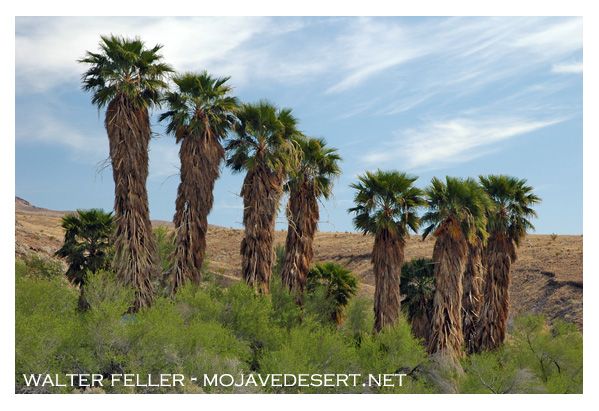Palm Oasis

The Palm Oasis is a special type of riparian community found only in the Colorado and Sonora deserts. The California fan palm, Washingtonia filifera, is the dominant characteristic species although other riparian plants are present. Chuparosa is common in the understory, its red tubular flowers attracting hummingbirds during spring. Individual palms may grow up to 30 meters tall and live for 250 years or more. Palm groves are found along geologic faults where breaks in the bedrock allow fresh water, as hot or cold springs, to come to the surface. California fan palms are now commonly grown as ornamentals, but their natural distribution is limited to widely separated groves in southeastern California, southern Nevada, southern Arizona, and northwest Mexico. Unlike other vegetation types of the Mojave and Colorado deserts, palm oases are adapted to surface fires; many of the ground-layer species do not occur unless the large palm leaf litter is burned. Several good examples of this rare ecological community can be accessed from Borrego Springs and throughout Anza Borrego State Park.
Previous - Next